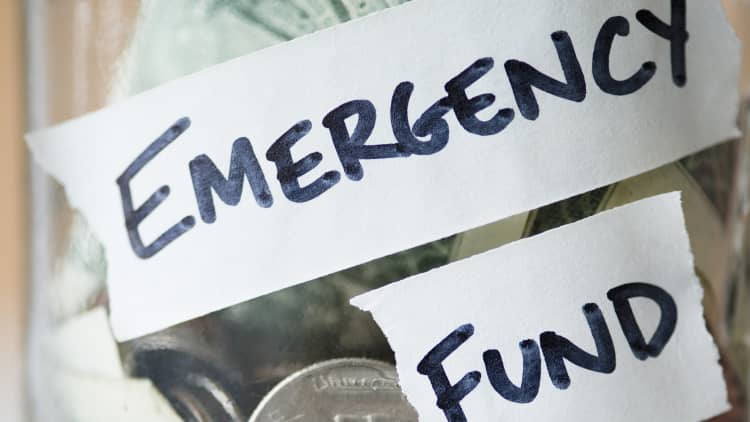Plan for the best; prepare for the worst.
That's a key combo for financial success, according to a new Ameriprise survey spanning five age groups. The financial firm polled 3,019 adults ages 30 to 79 who have at least $100,000 in investable assets.
The bulk of respondents — 95 percent — described themselves as confident in their financial future, and 78 percent say they're doing better financially than other people their age. Across generations, respondents commonly described financial success as having a sense of security and being able to provide for their family.
Yet 8 in 10 also told Ameriprise they have experienced a significant setback in the past five years that had a negative effect on their finances. (See chart below.) Many also cited worries of future financial challenges like a job loss, poor health or market volatility.
"It's natural for people to have financial fears," said Marcy Keckler, vice president of financial advice strategy at Ameriprise. "The lesson is to prepare in advance for what might go wrong."
Here's how to balance strategizing for both goals and potential pitfalls.
Plan for what milestones you can …
In the survey, respondents pointed to recent personal milestones that had the biggest impact on their financial situation, from buying a home (the top influencer for 30-somethings) to retirement (notable for those in their 60s and 70s). (See graphic below for a breakdown.)
Working with an advisor to create a financial plan can help you take steps to work toward big goals, making saving for big ones like retirement or a home down-payment more manageable, Keckler said. It can also help to create a financial timeline so you can see when milestones intersect and prepare to juggle — say, that you'll be eligible to make retirement catch-up contributions the same year that tuition bills start rolling in for your oldest child.
"That's the power of having a plan in place: You can see what's on the horizon," she said. "Not stumbling on it can make a big difference."
As part of your plan, assess how a big life change could influence cash flow and expenses, said Janet Stanzak, a certified financial planner and principal of Financial Empowerment LLC in Bloomington, Minnesota. That can help you strategize on ways to financially prepare.
For example, having a child might entail reduced income depending on your employer's maternity-leave policy, at the same time you need to find room in your budget for diapers, gear and other child-related bills. Switching jobs might boost your salary but could leave you juggling two mortgages in a relocation or result in other financial losses during the transition, she said.
And first-time homebuyers often neglect to budget in line items like property-tax increases, insurance and unexpected maintenance or repairs.
"Those are the things that sink us, if we're not prepared for it," Stanzak said.
… And create a safety net for what you can't
Build up cash reserves so that you have resources to tap in the event of a financial setback like a job loss, said Danna Jacobs, a certified financial planner and founding partner of Legacy Care Wealth in Jersey City, New Jersey.
"That way you have time, if something were to happen you don't have to make drastic financial decisions coming from a place of fear or panic," she said.
Like racking up credit card debt, for example, or raiding a retirement account.

Advisors typically recommend a goal of three to six months of expenses set aside. But if you're the sole income-earner, you may want to look at something more in line with six to nine months of expenses, Jacobs said.
It also helps to review your insurance coverage, Keckler said. Make sure you have adequate life and disability coverage and that there aren't gaps in your homeowners and auto policies.
Other strategies that respondents in the survey pointed to as helping them weather setbacks and achieve financial success included paying down debt and spending less than they earn. While all those polled have investable assets of at least $100,000, 34 percent have a household income of less than $100,000 — showcasing the power of a proactive savings approach, Keckler said.
"Across ages, people said one of the key strategies for success was to live within their means," she said. "That can help you avoid having to take on debt."
More from Personal Finance:
4 quirky tax deductions that could save you money
You have until April 1 to take out this retirement cash
Here are the highest and lowest state and local tax rates


